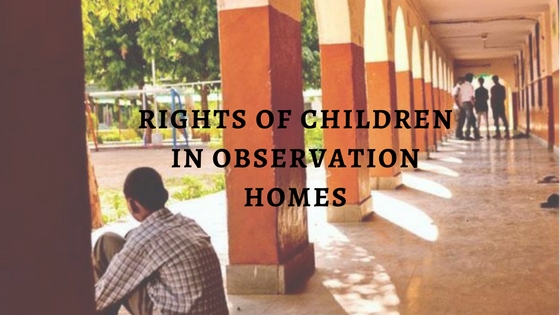Aapka Consultant Judgment Series- In this series, we are providing case analysis of Landmark Judgments of Hon’ble Supreme Court of India.
Sheela Barse Vs. Secretary, Children’s Aid Society and others
AIR 1987 SC 656, 1986 (2) SCALE 1234, (1987) 3 SCC 50, [1987] 1 SCR 870,
Hon’ble Judges/Coram: P.N. Bhagwati, C.J. and R.S. Pathak, J.
Date of Decision: 20.12.1986
FACTS: –
The appellant filed a writ petition in the Bombay High Court and in that petition, she made grievance about the working of the New Observation Home located at Mankhurd which is maintained and managed by the Children’s Aid Society, Bombay. According to her, the Children’s Aid Society, is registered under the Societies Registration Act 1860, and has also been treated as a Public Trust under the Bombay Public Trusts Act of 1950. The Chief Minister of Maharashtra State is the ex-officio President and the Minister for Social Welfare is the Vice-President of the Governing Council of the Society. The said Society receives grants from the State. It has set up a Remand Home at Umerkhadi within Bombay area and it is now run as an Observation Home under the provisions of the Bombay Children’s Act, 1948 (hereinafter referred to as ‘the Act’).
The High Court passed the judgement giving some directions to the relevant authorities. In this Court, the appellant has maintained that the High Court failed to consider several of the contentions advanced by her at the hearing of the writ petition, namely, (1) children while staying in the Observation Homes are forced to work without remuneration and are engaged in hazardous employment. There were instances where Observation Homes assigned the work to private entrepreneurs with a view to making financial gains for the Society and without making any payment to them. According to the appellant, the shortfall in follow-up action has not been properly considered by the High Court and the directions given by it are inadequate.
ISSUES: –
- Whether Children’s Aid Society falls within the ambit of the expression “The State” as provided under Article 12 of the Indian Constitution?
- Whether employment of children in the Observation Homes without any remuneration is illegal or not?
JUDGMENT: –
Children are the citizens of the future era. On the proper bringing up of children and giving them the proper training to turn out to be good citizens depends the future of the country. In recent years, this position has been well realised. In 1959, the Declaration of all the rights of the child adopted by the General Assembly of the United Nations and in Article 24 of the International Covenant on Civil and Political Rights 1966. The importance of the child has been appropriately recognised. India as a party to these International Charters having rectified the Declarations, it is an obligation of the Government of India as also the State machinery to implement the same in the proper way. The Children’s Act, 1948 has made elaborate provisions to cover this and if these provisions are properly translated into action and the authorities created under the Act become cognizant of their role, duties and obligation in the performance of the statutory mechanism created under the Act and they are properly motivated to meet the situations that arise in handling the problems, the situation would certainly be very much eased.
It is very much necessary, therefore, that officers at the different level called upon to perform statutory duties by exercising powers conferred under the Statute have to be given the proper training and only when they had the requisite capacity in them should they be called upon to handle the situation. The Child Welfare Officer (Probation) as also the Superintendent of the Observation Home must be duly motivated. They must have the working knowledge in psychology and have a sense of keen observation on their good functioning would depend the efficacy of the scheme. Children in Observation Homes should not be made to stay long and as long as they are there, they should be kept occupied and the occupation should be congenial and intended to bring about adaptability in life aimed at bringing about self-confidence and picking of humane virtues.
Dedicated workers have to be found out, proper training to them has to be imparted and such people alone should be introduced into the children homes. The Juvenile Court has to be manned by a Judicial Officer with some special training. Creation of a Court with usual Judicial Officer and labeling it as Juvenile Court does not serve the requirement of the statute. If that were so, the statutes have no necessity of providing a Juvenile Court. The statutory scheme contemplates a judicial officer of a different type with a more sensitive approach-oriented outlook. Without these any Judicial Officer would, indeed, not be competent to handle the special problem of children.
Respondent-Society should have been treated as a State within the meaning of Article 12 as it is undoubtedly an instrumentality of the State on the basis of the test laid down by this Court. The respondent-Society has, therefore, to regulate its activities not only in accordance with the statutory requirements but also act in a manner satisfying the requirements of the Constitutional provisions in Articles 21 and 24 as also the Directive Principles of the State Policy.
HELD: –
Children Aid Society falls within the expression of The State under Article 12 of the Indian Constitution and employment of children in the Observation homes without remuneration is not illegal per se.
To Get Legal Opinion from Advocates/ Legal Experts, Please click here
To Get Legal Opinion from Retired Hon’ble Judges, Please click here












